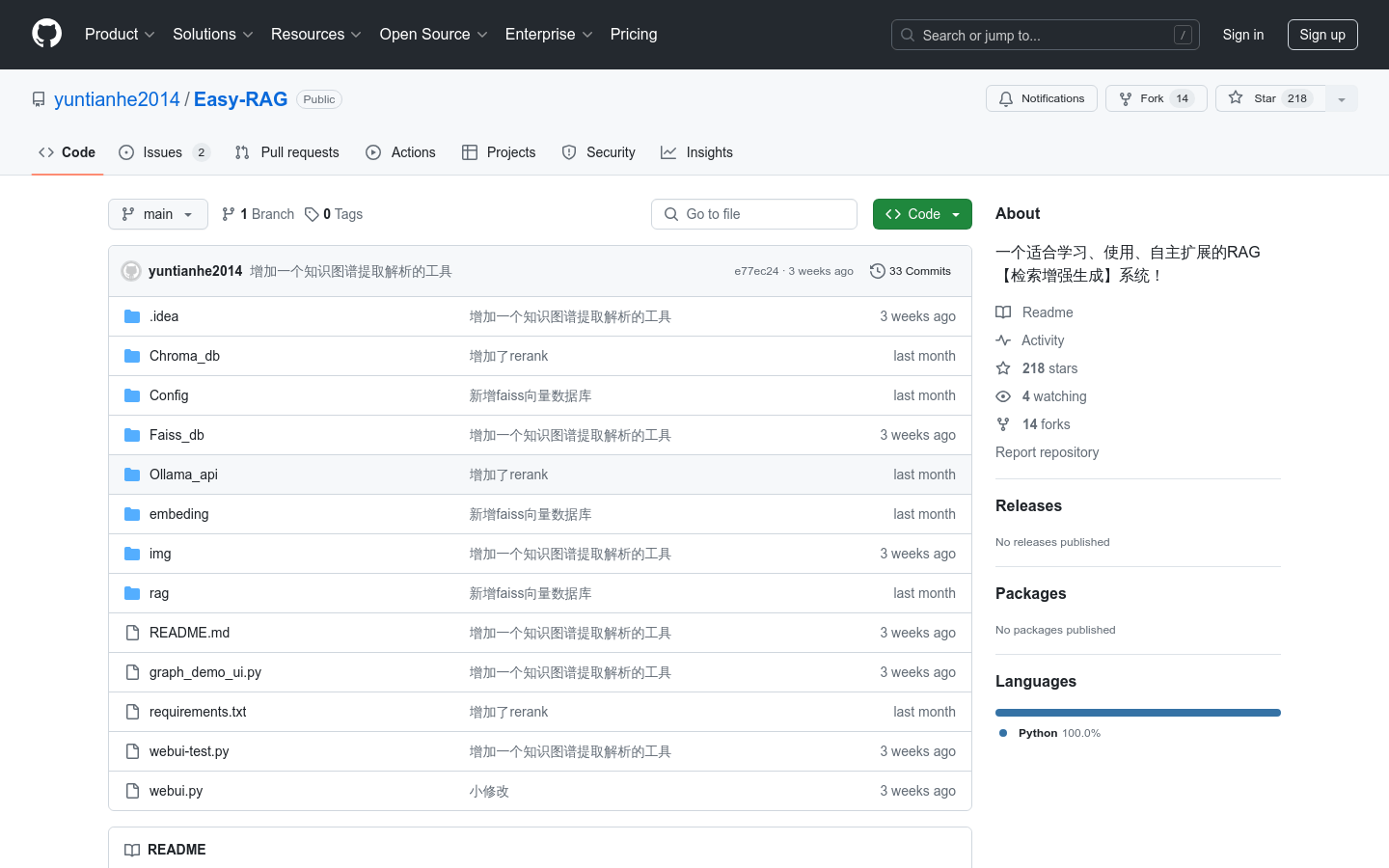

Easy RAG
Overview :
Easy-RAG is a Retrieval-Augmented Generation (RAG) system that is ideal for learners to understand and master RAG technology, while also being convenient for developers to use and expand independently. This system enhances retrieval efficiency and generation quality by integrating knowledge graph extraction tools, reranking mechanisms, and the FAISS vector database.
Target Users :
Easy-RAG is specifically designed for researchers and developers who wish to gain a deeper understanding and application of Retrieval-Augmented Generation (RAG) technology. Whether for academic research or commercial development, this system provides robust support to help users quickly accomplish complex retrieval and generation tasks.
Use Cases
Researchers use Easy-RAG to retrieve information and generate content in academic papers.
Developers leverage Easy-RAG to build intelligent Q&A systems, enhancing accuracy.
Companies implement Easy-RAG for personalized content recommendations, enriching user experience.
Features
Integrates knowledge graph extraction tools to enhance information retrieval capabilities.
Employs reranking technology to reorder retrieval results, improving efficiency.
Introduces the FAISS vector database to optimize vector retrieval performance.
Provides a web interface for user interaction.
Supports self-extension, allowing developers to add new features as needed.
Continuously updates with new functionalities and technologies.
How to Use
1. Visit the Easy-RAG GitHub page to learn about the project details.
2. Read the README.md file for installation and usage guidelines.
3. Clone or download the project's source code to your local environment.
4. Configure your environment and dependencies according to the installation instructions.
5. Run the system for functional testing and customization.
6. Expand the system as needed by adding custom features.
Featured AI Tools

Gemini
Gemini is the latest generation of AI system developed by Google DeepMind. It excels in multimodal reasoning, enabling seamless interaction between text, images, videos, audio, and code. Gemini surpasses previous models in language understanding, reasoning, mathematics, programming, and other fields, becoming one of the most powerful AI systems to date. It comes in three different scales to meet various needs from edge computing to cloud computing. Gemini can be widely applied in creative design, writing assistance, question answering, code generation, and more.
AI Model
11.4M
Chinese Picks

Liblibai
LiblibAI is a leading Chinese AI creative platform offering powerful AI creative tools to help creators bring their imagination to life. The platform provides a vast library of free AI creative models, allowing users to search and utilize these models for image, text, and audio creations. Users can also train their own AI models on the platform. Focused on the diverse needs of creators, LiblibAI is committed to creating inclusive conditions and serving the creative industry, ensuring that everyone can enjoy the joy of creation.
AI Model
6.9M













